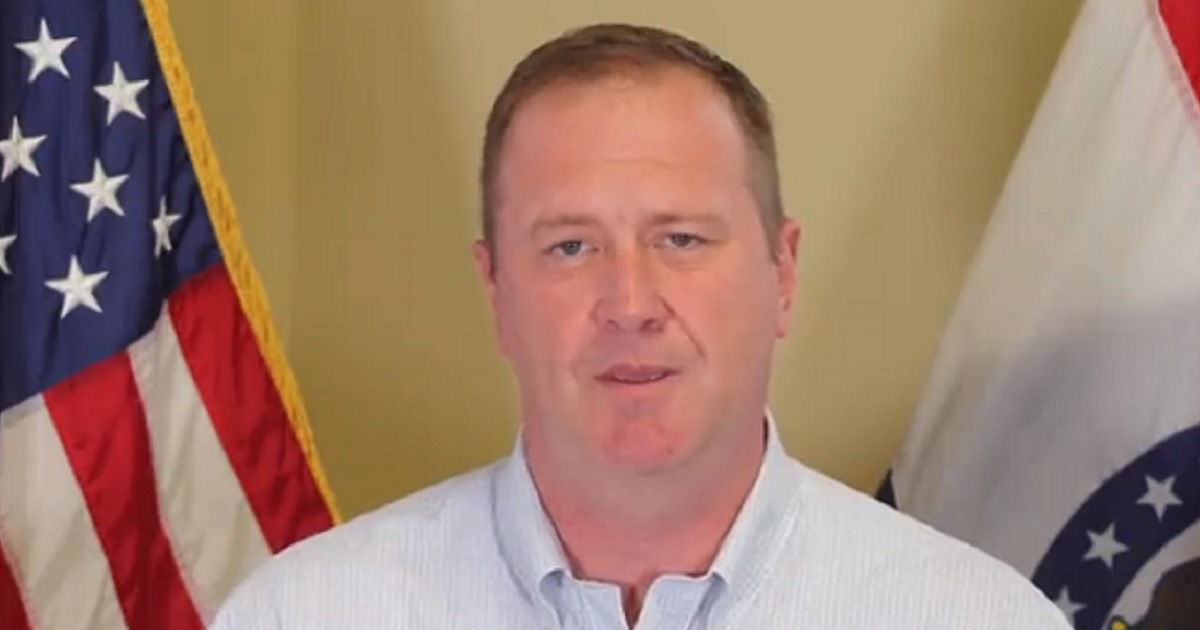Good.
That’s the only word: Good. Terse, simple, and correct. In the wake of the Supreme Court’s ruling in Dobbs v. Jackson Women’s Health Organization — which overturned the invented constitutional right to an abortion found in Roe v. Wade and Planned Parenthood v. Casey — plenty of conservatives were content to point out that this did nothing but return the matter to the states.
No, I wanted to scream. The states need to do something to protect the unborn now that they can.
And 13 of them did or will do so. According to The Washington Post, they’ve either banned or will ban abortion posthaste — via state laws written when overturning Roe was still just an ambition. Again: Good. Capital G, capital O’s and a capital, bolded and italicized D.
(Here at The Western Journal, we’ll keep you abreast of all the changes in abortion law that will be taking place after the seismic shift caused by the Supreme Court’s ruling in the Dobbs case — all with a Christian, conservative focus you won’t find in the mainstream media. If you support our work, please consider subscribing.)
At present, there are currently seven states that ban abortion: Alabama, Arkansas, Kentucky, Louisiana, Missouri, Oklahoma and South Dakota.
All of these states had bans or so-called “trigger laws” that would ban abortion if the Supreme Court overturned Roe.
Several of the trigger laws took effect automatically, while some required a state official to put things in motion. Missouri was the first to pull the trigger (an odd metaphor, considering the law is about saving lives), with Attorney General Eric Schmitt signing the necessary paperwork less than an hour after the decision was issued.
? BREAKING ? Following the SCOTUS ruling overturning Roe v. Wade, Missouri has just become the first in the country to effectively end abortion with our AG opinion signed moments ago. This is a monumental day for the sanctity of life. pic.twitter.com/Jphy72R4rq
— Attorney General Eric Schmitt (@AGEricSchmitt) June 24, 2022
“Today, following the United States Supreme Court’s ruling that overturned Roe v. Wade, with the issuance of an attorney general opinion, my Office has yet again reinforced Missouri’s dedication to protecting the sanctity of life, both born and unborn,” Schmitt said in a news release.
“With this attorney general opinion, my Office has effectively ended abortion in Missouri, becoming the first state in the country to do so following the Court’s ruling.
“My Office has been fighting to uphold the sanctity of life since I became attorney general, culminating in today’s momentous court ruling and attorney general opinion. I will continue the fight to protect all life, born and unborn.”
Schmitt also released a video celebrating that “millions of innocent lives will be protected moving forward,” while noting that “we also remember the over 60 million innocent lives lost” to abortion.
THREAD: Today is a historic day, but we also remember over 60 million innocent lives lost. There was a lot of work behind the scenes before we achieved this incredible victory. Here are some of our efforts to protect all, including the unborn. pic.twitter.com/rI8GTLgr5r
— Attorney General Eric Schmitt (@AGEricSchmitt) June 24, 2022
Another six states have trigger bans that do not take effect immediately: Idaho, Mississippi, Tennessee, Texas, Utah and Wyoming.
All of these states, however, will ban abortion within a matter of days or after a period of 30 days. Thus, within a month, 13 states will have banned the murder of the unborn.
Six more states, according to the Post, are likely to ban or severely limit the procedure, as well: Georgia, Indiana, Iowa, Ohio, South Carolina and West Virginia.
These states either have bans on abortion after six weeks of gestation that were blocked by the courts and are currently moving through the system, have pre-Roe laws banning it, or have GOP governors who have indicated they would call a special session to pass a ban if the Supreme Court moved to overturn Roe.
Another 10 states were listed as “uncertain” by the Post for a variety of reasons.
“In Pennsylvania, Wisconsin and Michigan, Democratic governors have been a firewall against antiabortion legislation proposed or passed by Republican-led legislatures. The future of abortion access will depend on the upcoming midterms: If antiabortion Republicans win those governors mansions, Republican lawmakers will have a clear path to banning abortion,” the Post noted.
In Kansas, according to the Post, voters will decide in a statewide referendum in August on a constitutional amendment that would eliminate abortion protections established by the state Supreme Court.
And in Virginia, the Post reported, Republican Gov. Glenn Youngkin said shortly after the Dobbs decision was released that he “tasked four Virginia lawmakers — all antiabortion Republicans — with authoring legislation to ban most abortions after 15 weeks of pregnancy.”
Meanwhile, the Post listed 21 states and the District of Columbia as jurisdictions “where abortion is legal and likely to be protected.”
Of course, every serious believer in the sanctity of life should want abortion banned throughout the country. And maybe sometime it will be. Friday’s Supreme Court ruling showed that anything is possible.
For today, however, we can say this: Good. Now, let’s work at going from “good” to “better.”
This article appeared originally on The Western Journal.
























